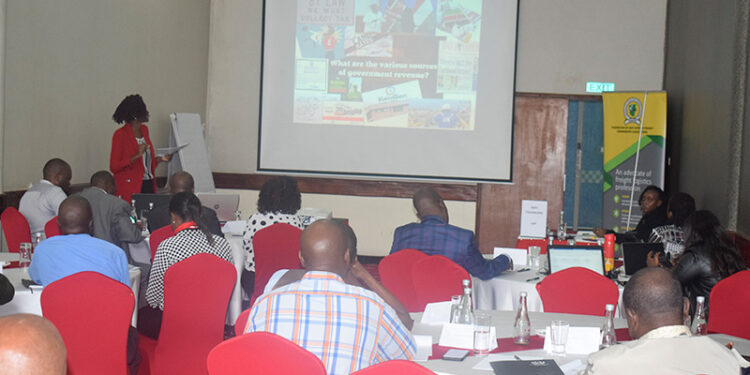Kenya and Uganda have committed to considering Continuous Professional Development (CPD) point scores when licensing customs and clearing agents in their respective countries in a move that is expected to increase the uptake of the program in the region.
Agents are expected to register on the Integrated CPD management system to create their profiles, claim their CPD points, and track the progress of their CPD activities.
“The CPD points will form part of the other requirements for licensing and practitioners will be expected to attain minimum CPD points per year to qualify for licensing by the customs authorities,” FEAFFA President Mr. Philippe Ndikumana said.
Piloting of the CPD program started in Rwanda in October 2022. It has also been done in Kenya and Uganda. Over 250 agents are currently registered on the CPD system, which was built to support the roll-out of the CPD program.
The program has been developed by FEAFFA with the support from the United States Agency for International Development (USAID) and the Kingdom of the Netherlands through TradeMark Africa (TMA) to enable the industry to roll out training programs to keep logistics players up to date with the dynamics in the critical logistics sector.
So far, stakeholders involved in the program have had 9 workshops in the 3 countries with Uganda leading with a total of 5. Some workshops were held virtually.
“The workshops were facilitated by individuals with expertise in customs and freight forwarding in the region. Uganda and Kenya have managed to hold workshops that are paid for by participants.” Ndikumana said.
The inaugural workshops in each country were graced by the commissioners of customs with all pledging to support the initiative. Like other professional fields, the CPD program aims at standardizing the Customs clearing and freight forwarding profession.
The program targets individual practitioners in individual clearing and forwarding firms and aims at developing them professionally by enabling lifelong learning, keeping them updated with industry changes, enhancing their competence, and supporting their overall growth and success in the sector.

The CPD program focuses on technical competencies, emerging issues, and the personal development of practitioners to enhance professionalism and compliance with the existing regulations and in turn, contribute to a reduction in time taken to process cargo through customs thus significantly contributing to a reduction in the cost and time of transport and logistics in the East African Community (EAC) region.
The CPD program, according to Ndikumana, is expected to be self-sustainable through the subscriptions of individual practitioners when participating in various activities.
Legislation is also needed to support the professional development of logistics sector players and guarantee the success of the logistics industry training interventions.
Speaking during the launch of the program in Kenya, earlier this year, Ms. Nancy Muya on behalf of the Principal Secretary, of the State Department of Industry Kenya, reiterated the Ministry’s support for interventions that enhance regional trade and the government’s willingness to partner with the private sector and other industry stakeholders to enhance competitiveness in the region.
“We are impressed by KRA’s collaboration with Freight Forwarders through training that is aimed at enhancing professionalism and compliance to enhance competitiveness and revenue collection we are willing to partner with the private sector in this move,” Ms. Muya said.
According to Ms. Anataria Uwamariya, Business Competitiveness Director at TradeMark Africa (TMA), the inefficiencies and poor quality of logistics service are a barrier to trade and negatively impact the cost and time of moving goods across the EAC region.
This article was published by the editorial team at FEAFFA. For any enquiries, contact us via Email: freightlogistics@feaffa.com Tel: +254733780240





